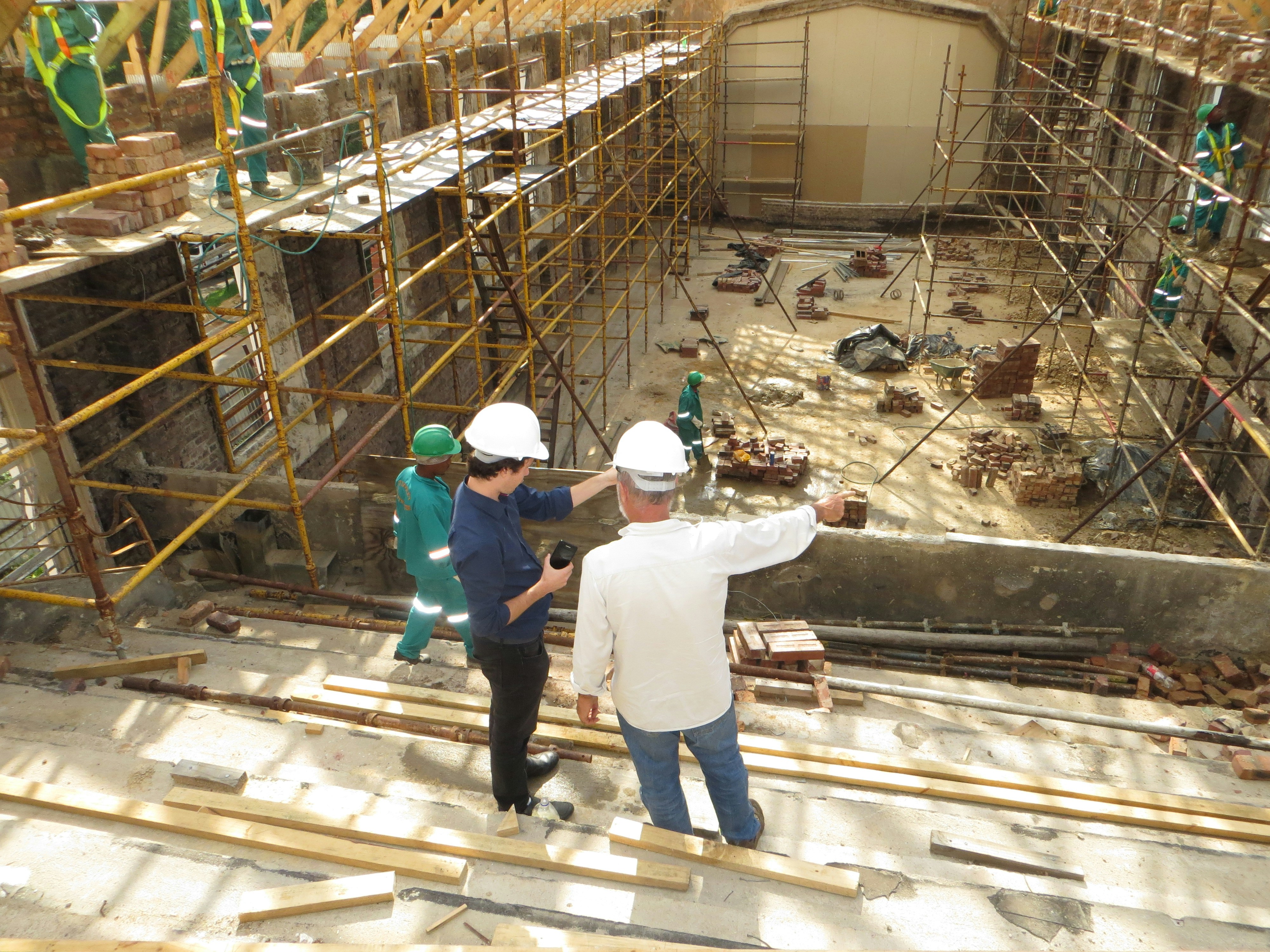The Importance of Agile Leadership in Construction Projects
In the changing realm of construction projects today Agile leadership has become a method that resonates with the industry's call for adaptability and prompt reactions to alterations on the field. Embracing leadership in construction undertakings empowers teams to promptly adjust to hurdles ensuring that projects progress on time and within budget limits. As per Easy.bis insights implementing methodologies can notably shorten the duration from project initiation to completion in construction activities emphasizing feedback and iterative advancements.
Fostering leadership means creating a team atmosphere that encourages sharing ideas and suggesting solutions collaboratively for better team spirit and performance management in construction projects that are often intricate and require teamwork across functions to align stakeholders with project objectives effectively.
Furthermore Agile leadership encourages the incorporation of technology into construction endeavors like Building Information Modeling (BIM) and various digital instruments to improve workflow and elevate project results. Through embracing concepts construction supervisors can effectively handle uncertainties optimize resource distribution and produce superior projects that surpass client anticipations or demands.
Scalability in IT for Real Estate Businesses
Scalability is crucial for real estate businesses aiming to grow and enhance their services in the realm of IT operations. Optimum performance can be maintained by real estate companies through the adoption of IT solutions that can handle workloads and larger data quantities. Cloud-based systems stand out as a choice for achieving scalability due to their adaptability and cost-effectiveness as highlighted by Easy.bi.
Cloud computing enables real estate companies to utilize IT resources as needed to adjust their operations according to requirements swiftly. This flexibility plays a role in an industry to rapid fluctuations in market conditions. Cloud solutions also support automated processes that enhance efficiency and shorten the time it takes to introduce properties and services to the market.
Moreover IT systems that can grow support the merging of technologies like intelligence and machine learning which can boost data analysis and decision-making processes. In the context of real estate companies this translates to improved understanding of customers enhanced property management and efficient marketing plans. By using IT infrastructure real estate businesses can stay competitive and attuned to market needs.
AI Copilots for Teams in Construction
AI copilots are changing how construction teams work by giving help and advice in time. These tools powered by AI aid teams in construction to boost efficiency and precision so they can concentrate more on tasks than doing manual data entry or repetitive computations. Easy.bi mentions that using AI copilots can greatly enhance team coordination through analysis and automatic decision-making assistance.
AI copilots offer an advantage through their data processing capacity which allows them to spot patterns and trends that may escape human observation at first glance. This efficiency empowers construction teams to make informed choices in resource management and foresee project hurdles. Moreover AI copilots can enhance team interaction and collaboration by serving as a hub for sharing information amongst team members.
Integrating AI copilots into construction processes also aids in attaining objectives that are precise in nature and can be measured and realistically accomplished within a specified time frame while being relevant to the project context as well. By matching project goals with insights derived from data analysis can enhance how construction teams manage performance and attain project results. With the advancement in the construction sector’s landscape AI copilots are set to become facilitators of innovation and productivity improvements.
Implementing Human Resource Tactics in the Real Estate Sector
Strong human resource (HR) strategies play a role for real estate companies aiming to attract and keep individuals onboard in this fiercely competitive industry landscape where standing out is key to success as reported by Easy.bi technology integration in HR procedures can elevate hiring procedures and foster better employee interaction.
Real estate businesses can enhance their HR strategies by using performance management systems that offer feedback and aid in employee growth as well as development opportunities effectively managed by supervisors to establish clear expectations and monitor progress while identifying areas for enhancement within the workforce structure. Moreover integrating AI and machine learning into HR operations can simplify the screening and selection of candidates ensuring that companies recruit individuals who resonate with their core values and objectives.
In addition to that point mentioned earlier on the advantages for real estate businesses in utilizing automated processes within their human resource departments which help lessen tasks and enable HR experts to concentrate on endeavors. A focus on employee contentment and career advancement can create a favorable workplace atmosphere for attracting top-tier professionals and improving overall business success.
Fine-Tuning the GPT Model for Internal Tools within the Construction Industry
Construction companies are delving into ways to optimize the use of GPT (Generative Pretrained Transformer) within their tools to enhance project results and operational effectiveness as artificial intelligence progresses. GPT models have the ability to understand and create text resembling language which proves beneficial for streamlining documentation procedures and communication practices.
Fine-tuning a GPT model for construction-related purposes includes training it with data to the industry to grasp the terms and subtleties commonly found in construction settings as per Easy.bis insights stated that this tailoring may result in more precise and situationally aware results vital for decision-making and overseeing projects.
Integrating GPT into their systems enables construction companies to improve IT scalability and streamline a range of processes from project planning to risk evaluation. Employing GPT also aids in setting objectives by offering data-backed suggestions and insights. As the construction sector moves towards a data approach utilizing AI tools like GPT will become crucial for firms aiming to outshine their rivals.
Streamlining Team Management in the Real Estate Industry
Streamlining the management of teams in the real estate industry through the use of technology is crucial for operations. Improved productivity. Team management is vital for real estate companies looking to provide top-notch service and meet their business goals effectively. Utilizing technology is key in simplifying team management procedures for real estate firms. Helps in boosting communication, teamwork effectiveness and overall productivity within the organization. Easy.bi suggests that incorporating solutions can result in operations and better project results.
Technology plays a role in improving team management by utilizing collaboration platforms that aid in real-time communication and sharing of information among team members efficiently without being limited by their whereabouts-especially advantageous for real estate companies with teams spread out across different locations.
Furthermore software systems for evaluating performance enhanced with intelligence can offer feedback and data analysis to assist managers in making well-informed choices and pinpointing opportunities for enhancement. Through the utilization of technology to enhance team supervision practices real estate companies have the potential to boost employee contentment minimize staff turnover rates and attain business outcomes.
The Influence of Automated Workflows on Enhancing Efficiency in Construction Works
Automated processes are transforming the construction sector by boosting productivity and cutting down workloads effectively. By automating duties construction companies can liberate time and resources enabling teams to concentrate on more critical tasks. As per Easy.bi integrating automated workflows can result in enhancements in project schedules and financial savings.
Automated workflows offer an advantage in standardizing procedures and minimizing mistakes within construction operations by implementing technology to handle tasks like entering data and managing documents or schedules across various projects. This improves project results while also elevating client happiness and confidence.
Furthermore automated processes enable scalability in information technology (IT) allowing construction companies to manage workloads without sacrificing quality standards. With the developments in the industry integrating automated workflows will become crucial for companies aiming to improve their advantage and foster sustainable expansion.
Setting Objectives in Property Development
Setting objectives is crucial in the realm of property development as it lays out a clear path towards reaching desired results efficiently and effectively. Specific objectives are vital as they allow for measurement of progress and attainability within a timeframe to ensure well-thought-out execution of real estate ventures. Easy.bi underscores the importance of aligning project aims with goals in enhancing the likelihood of project success and client contentment.
In the realm of real estate development establishing goals requires outlining project milestones and performance metrics. This helps project leaders monitor advancements and base decisions on data ensuring projects stay on track and within limits. Moreover these strategic goals offer a structure for enhancements enabling teams to proactively recognize and tackle obstacles.
Smart goals play a role in boosting performance management effectiveness by offering a framework for assessing team performance and pinpoint areas for growth in real estate firms. Emphasizing goal setting can elevate project results boost stakeholder involvement and secure success in a fiercely competitive market.
In the moving world of construction work it's essential to speed up the time to market in order to stay ahead and satisfy customers' needs efficiently. Using technology in construction helps speed up project schedules and increase productivity. As highlighted by Easy.bi embracing construction technologies can cut down project completion times significantly and boost client happiness.
One method technology enhances speed to market is by utilizing design and modeling tools like Building Information Modeling (BIM). These tools allow construction teams to visually map out and strategize projects thoroughly by spotting problems and making modifications prior to the start of construction work. This thinking strategy reduces setbacks and guarantees the timely completion of projects.
Additionally in the realm of construction technology aids in streamlining workflows and analyzing real-time data swiftly and effectively which enables teams to judiciously make informed decisions. Utilizing technology to improve the speed at which projects reach the market enables construction companies to elevate their edge and deliver projects that not only meet but also surpass client anticipations.












